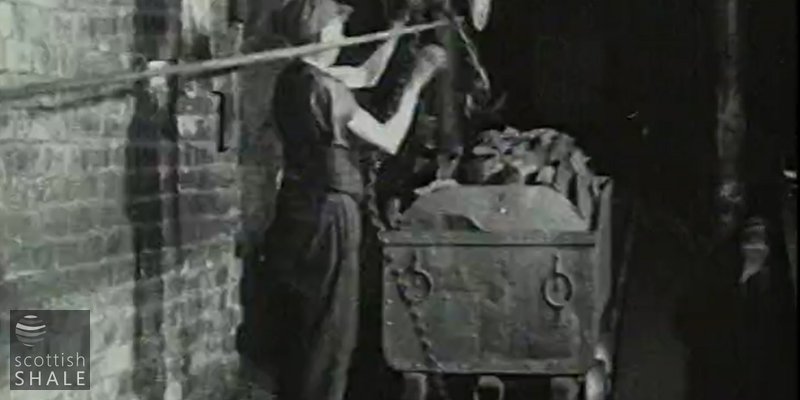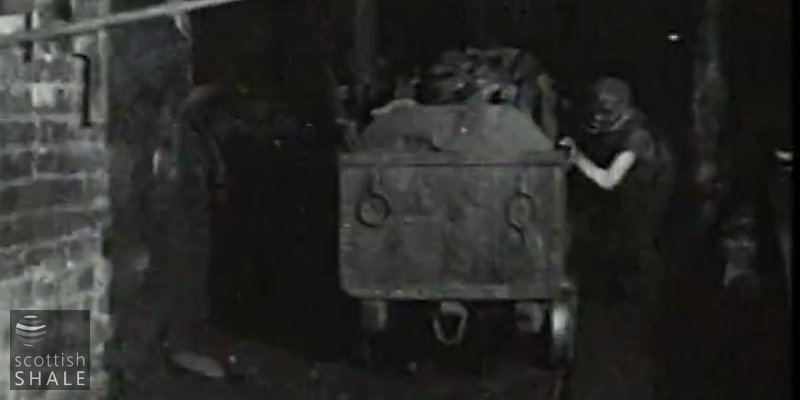Chain runner
also known as runner, chainman, chainer, clipper

Frame grab from the film "The Scottish Shale Industry" 1929.

Frame grab from the film "The Scottish Shale Industry" 1929.
Chain runners were in charge of attaching "rakes" or trains of hutches to continuously moving overhead cables that hauled them along underground roadways to the pit bottom. In mines the hutches were hauled the surface. The chain runner accompanied hutches during transport, fastened and unfastened hutches to the haulage chains, ensured their safe passage and signalled to the haulage engineman to start and stop the haulage operation. The term chain runner was also applied to someone performing a similar role on the surface, although sometimes referred to as a pithead runner.
Wages & Working Hours
According to The Board of Trade Census of Wages conducted in 1886, chain runners working underground earned an average weekly wage of 25s 2d. Most underground workers, with the exception of miners and drawers, worked between 54 and 60 hours per week. Runners employed at crude oil works earned on average 22s 2d per week and worked a 13 shift fortnight.
In 1925, the Report of a Court of Investigation Concerning the Wages Position in the Scottish Shale Oil Industry, records that an average 5.77 day week was worked by underground workers with around 7.5 hours per day spent underground. Average weekly earnings for boys under 18 years of age working underground were 26s 10d, youths aged between 18 and 21 earned 31s 6d and men earned £2 13s 0d. No specifc data is available for runners employed at crude oil works, however the average weekly wage for men employed in the oil works was £2 15s 3d and 16s 11d for boys under 18. Men employed at crude oil works worked an average of 6.67 days per week with many working 7 days per week.
Patrick Gavin, chain runner, Pumpherston Rows, was charged with having on 20th May at Uphall Oil Works, while employed there as a chain runner on the top of an incline on the spent shale bing, placed a quantity of waggon grease upon four pulley wheels and did thereby cause the endless chain passing over said wheels to slip over them, Interrupting the work and destroying said wheels and chain and endangering the lives and limbs of a number of workmen. He pleaded not guilty, but was convicted on evidence and fined £2 or 18 days.
West Lothian Courier 1st July 1899